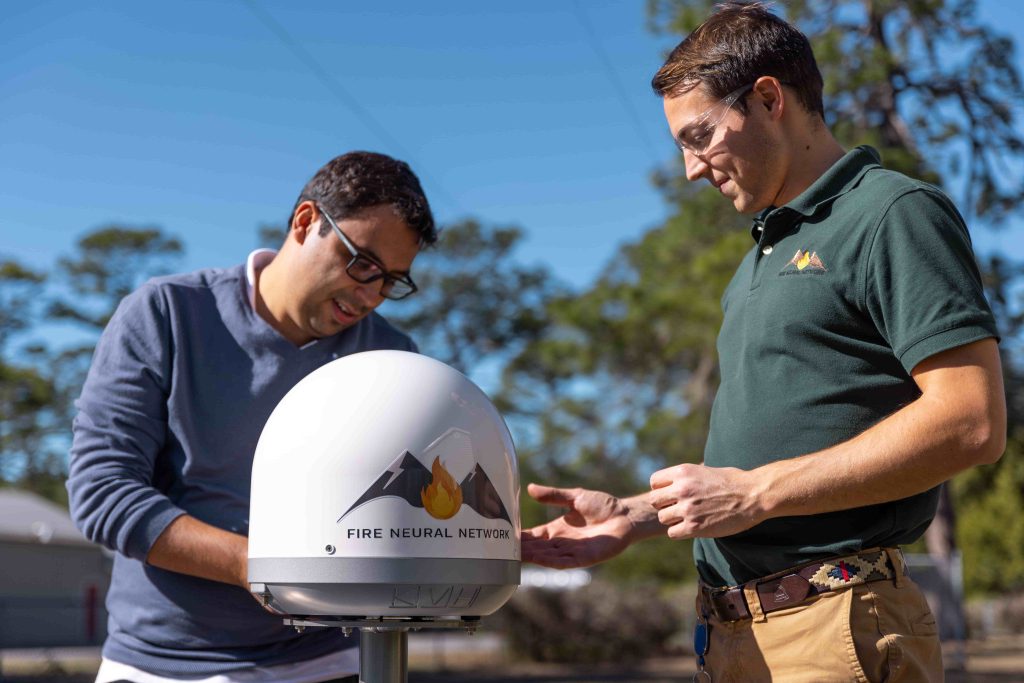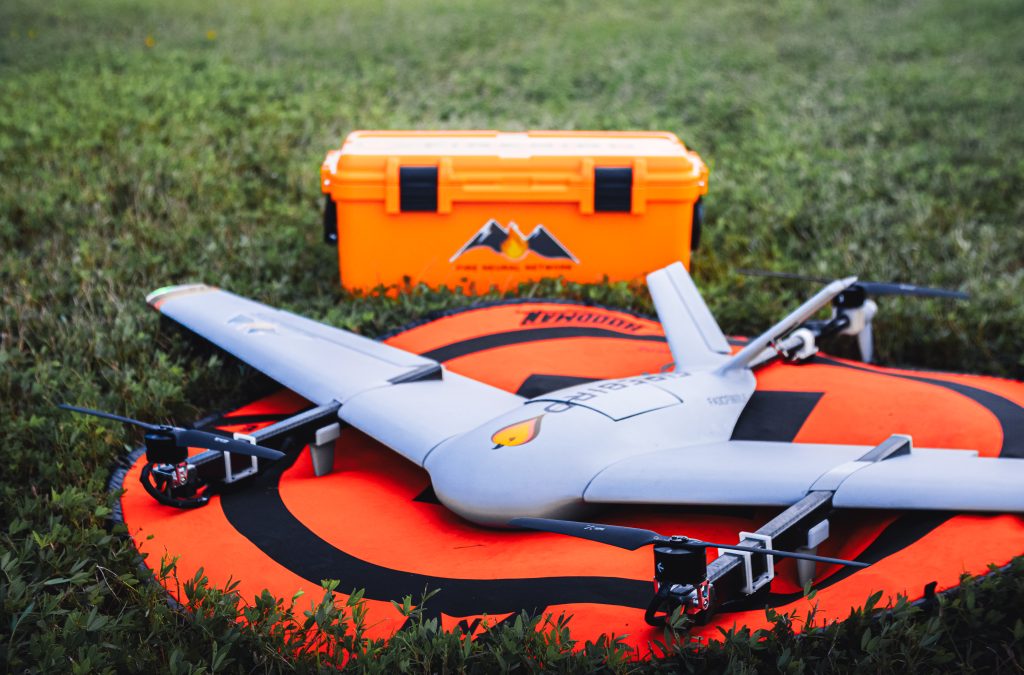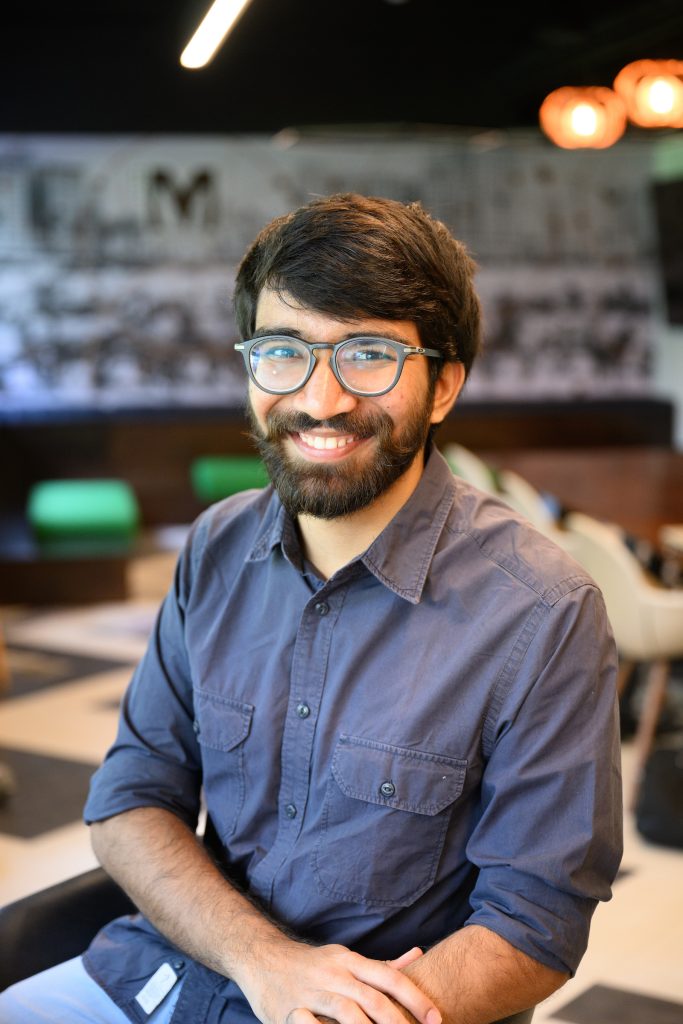UF Innovate Startups Transition into 35 Mules Program for Continued Growth
Starting the Journey
Three companies created by University of Florida students with vastly different ideas find their journeys intertwined through their foundational education at UF, participation in the Big Idea Competition, and subsequent incubation at the 35 Mules Innovation Hub.
Fire Neural Network, a company Finding Fires Lightning Fast℠, Abilitare, a company making technology accessible for those with hand disabilities, and Digital Twin Marine, a virtual modeling company for maritime applications, all share a common origin: UF. Each company’s founders were students or faculty driven by a passion for solving complex problems through technology.
UF’s environment, known for fostering creativity and scientific inquiry, was pivotal in nurturing these early-stage ideas. Part of that included the Big Idea competition organized by the UF Entrepreneurship and Innovation Center in the Warrington College of Business. The competition provided a four-month experience to help students grow their business ideas through feedback and validation.
In 2021, Abilitare took first place; Digital Twin Marine took second. Following that achievement, they both got accepted into the 35 Mules Innovation Hub, a Florida Power & Light Company initiative.
“When we were preparing for the 2022 Big Idea competition, I called both previous winners,” said Dr. Istvan Kereszy, co-founder and CEO of FNN. “I asked for some feedback on the competition – how they presented, what the judges liked. Tom Bruger from Digital Twin Marine gave me some very good advice, and then he said, ‘Now you should focus on winning the Big Idea competition, and that will put you on the right path for the 35 Mules program as well.’“
“So, we won the competition and then, yes, we visited at their office. That’s how it all started.”
FNN is in the current cohort going through the 15-month program at 35 Mules Innovation Hub, named after the 35 mules that initially powered FPL’s first operations. It is dedicated to nurturing startups exhibiting a high potential for disruptive innovation. Within the hub, these companies receive tailored support, including access to state-of-the-art facilities, business mentorship, entrepreneurial coaching, and more.
Of the 13 total companies that have gone through the program, these are the three from UF:
Fire Neural Network
It took black holes and rocket-triggered lightning — in addition to a compelling need – to compel Istvan to form Fire Neural Network.
In 2019 and 2020, the need was obvious – evidenced by raging wildfires in California and Australia sparked by lightning. Black holes – or, rather, his UF physics professor and CTO Imre Bartos pointing to technology’s ability to locate black holes merging 10 billion lightyears away contrasted with its inability to spot a fire 10 miles away – were a less obvious impetus.
But the chance to create – and study – lightning at will by triggering it with rockets showed Istvan and his team how they could make a difference.
“We were able to reproduce lightning instead of having to wait for it,” Istvan explained. “We then saw that some lightning strikes last about 1,000 times longer than the average strike – and because of that, it’s much hotter.”

FNN COO Tamas Kereszy and Director of Marketing and Finance manager Caroline Comeau are both Gators as well.
Istvan focused on lightning, climate change, and high-energy atmospheric physics as he pursued his doctorate at UF’s Department of Physics in the College of Liberal Arts and Sciences. Lightning causes 90 percent of wildfires, in many key wildfire hotspots, where fires grow for 24 hours or more until they’re big enough to notice – and often too big to stop easily before threatening populated areas, causing devastation and undoing years of efforts designed to protect our climate.
Now, as he considered how to prevent the devastation of wildfires, he wondered how he might use advanced technology and his new knowledge to help stop the fire crisis. He determined to use AI to quickly and accurately locate lightning-initiated wildfires, reducing times from 24 hours to 40 seconds and locating ignition points within 40 meters instead of kilometers.

He didn’t need to predict or locate all lightning strikes; he needed to differentiate between high-risk lightning and low-risk lightning – from the perspective of wildfires and powerlines, he emphasized, because humans should consider all lightning dangerous.
It was participating in the 35 Mules program that broadened FNN’s aim to include power transmission lines in addition to monitoring dangerous lightning strikes that might ignite wildfires. Consider the fires in California and Hawaii stemming from electrical wires that sparked them.
“Lightning is a big problem because it causes fires, but it’s also the number one cause of power outages in the state of Florida,” Istvan said. “So, in addition to preventing wildfires, we’re trying to reduce power outages and help utilities provide more reliable power delivery.”
All the more reason for Istvan’s technology to function “lightning fast.”
Abilitare
Parth Shah’s journey from a computer science master’s student at UF’s Herbert Wertheim College of Engineering to the founder of Abilitare, a groundbreaking disability technology company, is a testament to his dedication and innovation.
During his academic tenure, Parth’s research spanned diverse applications of machine learning and artificial intelligence. Under the mentorship of Distinguished Professor Sanjay Ranka, Parth contributed to projects like optimizing traffic lights using machine learning algorithms and developing data compression techniques for scientific simulations.

However, it was a TED talk by a muscular dystrophy patient that sparked his passion for inclusive technology, leading him to enter the Big Idea business plan competition.
Teaming up with his roommate Mohit Patil, Parth pitched the idea of a device enabling hands-free computer control. Although they initially faced challenges, their persistence paid off when their team won the first prize of $25,000 in the Big Idea competition.
This victory propelled them to establish Abilitare, with support from UF Innovate and mentorship from industry experts such as UF Innovate | Accelerate Director Karl R. LaPan and UF Professor Benjamin Lok. Abilitare’s journey gained momentum through various pitch competitions and media features, ultimately catching the attention of 35 Mules.
The support from 35 Mules was instrumental in Abilitare’s growth, offering valuable guidance and networking opportunities. With its backing, Parth embarked on developing eye-controlled augmented reality technology and filed a provisional patent for Abilitare’s proprietary AI.
Matthew Hedrick, 35 Mules project manager, and Thomas O’Neal, entrepreneurial coach from the University of Central Florida, among others played pivotal roles in securing grants and fostering collaborations with institutions like the Veterans Affairs Hospital.
Through Parth and Mohit’s leadership and the unwavering support of mentors and partners, Abilitare continues to advance its mission of empowering individuals with disabilities through innovative technology.
Digital Twin Marine
At UF, Tom and Nicky Bruger pursued their MBA degrees, accelerated their business knowledge, and launched their startup, Digital Twin Marine.
Digital Twin Marine creates customized 3D virtual replicas of ships, similar to Google Street View but for the maritime industry. The models allow maritime companies to manage projects, market, and train crews with the click of a button and from anywhere in the world.

Throughout UF’s MBA program, Tom and Nicky honed their business skills and developed valuable connections. Mentors such as Prof. Michael Carrillo taught them the ins and outs of business-to-business sales, while fellow MBA students enhanced their networking skills and presented various opportunities.
One of these opportunities was, of course, the Big Idea competition, which earned Digital Twin Marine the second place spot and $10,000 to fund their startup. They joined 35 Mules soon after.
“It is an honor to know and continue to stay connected with the founders from Abilitare and FNN,” Tom said. “We encouraged Fire Neural Network to apply to 35 Mules and were jointly in the program with Abilitare.”
Digital Twin Marine recently relocated to Saint Petersburg, Florida, and received its first patent on a hollow 360 light, engineered to illuminate tanks on ships.
In Conclusion
The stories of Fire Neural Network, Abilitare, and Digital Twin Marine demonstrate the dynamic synergy between academia, competitive innovation, and corporate support. Their journey from the classrooms and laboratories of UF, through the rigors of the Big Idea competition, to the nurturing ecosystem of the 35 Mules Innovation Hub, underscores the importance of a supportive and collaborative environment in turning visionary ideas into reality.
They serve as inspiring examples of how determination with the right support, can transform ambitious ideas into successful enterprises.
Written by Sara Dagen, UF Innovate, and Monique Mendez, Florida Power and Light Company
